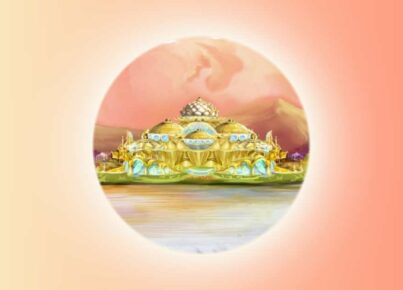The roles of various saints and great souls, born from time to time, have been significant. They all were messengers of God. Even though their roles cannot be compared to that of God, yet the message they gave inspired humanity to do something good. They were pure and divine souls who dedicated their lives to serve humanity. They dedicated their entire lives to a good cause through the power of love, compassion, tolerance, and generosity. Jesus Christ, Abraham, Mahatma Buddha, Shankracharya, Guru Nanak Dev, and many other holy saints are revered for their noble services towards the betterment of humankind.
If we look at their lives, we realize that despite their divine behavior, they were opposed by the negative forces that didn’t approve of their teachings. However, their immense tolerance brought about positive changes in the lives of their followers. They were a source of inspiration and were role models to millions of souls. The divine message that they propagated had such a deep impact on their followers that they were given even the status of gods. Their virtues such as peace, purity, bliss, etc. are evident from their life stories.
One Incorporeal God
One thing that they all propagated, was the teaching of One Incorporeal God, the Father of all the souls in this world. All religions have images, idols, or memorials to represent God as a form of Light.
All over India, there are images of Shiva in the form of linga. These images are without any human form. The linga is a symbol of an incorporeal Being.
At Mecca, in the holy place of Kaaba, an oval-shaped stone is called ‘Sange-Aswad’. Devotees who go for Haj, kiss this holy stone.
Jesus Christ said, “God is Light”.
Guru Nanak, the founder of Sikhism also sang His praise. The Guru Granth Sahib further says ‘Sat Sri Akaal’ meaning God is the One who is the Truth, Elevated, Immortal, and Eternal.
In the olden days, the Jews used to hold a stone of this oval shape in their hands while taking a solemn oath. It is believed that Moses had a vision of this form of God when he saw a flame behind the bush.
The Zoroastrians worship God as fire.
The ancient Egyptians worshipped the Sun as God.
A Buddhist sect in Japan focuses the mind on a small oval shape. They call it Karni, the peace giver.
It seems, therefore that human beings without realizing it, have been worshipping and trying to discover the same God. There is only one God and His form is a point of light. He is called by different names in different religions but He is one, the Incorporeal Supreme Soul.
Praising of God
Guru Nanak Dev, who established Sikhism and is undoubtedly a unique messenger. The way he praised God is unparalleled. Some of the hymns and verses mentioned in the scriptures of Sikh religion, viz. Guru Granth Sahib, Darbar Sahib, Japji Sahib are mentioned in Sakar Murlis, i.e. Godly versions spoke by God Shiva through the medium of Prajapita Brahma, as follows: Atma-Parmatma Alag Rahe Bahu Kaal, Sundar Mela Kar Diya Jab Satguru Mila Dalal (Soul and Supreme Soul remained separated for ages; their communion has been so beautiful when He, the preceptor met souls in the form of an agent*) Moot Paleeti Kappad Dhoye (God cleanses the impure and vicious souls) Manushya se Devta kiye Karat Na Laagi Vaar (It did not take God long to transform human beings into deities) Ek Onkar, Karta Purakh, Nirbhaya, Nirvair, Akaal Murat, Ajooni (God is one, He is the doer, He is fearless, without enmity. He is not subjected to birth and death as human beings). Mujh Nirgun Haare Mein Koi Gun Naahi, Aape Hi Taras Paroyi (That means in devotion, we call upon God to show mercy on us as we have lost all our basic values and virtues). Guru Nanak Dev, despite being a house-holder, played a crucial role in propagating the religion. He never claimed that he is God, but always glorified Him in his praises so, on the occasion of Guru Nanak Birthday, let’s pledge to imbibe the values which were the basis of his life and make our life worthwhile.
*Here, Agent means the corporeal medium of God Shiva, i.e. Prajapita Brahma.


